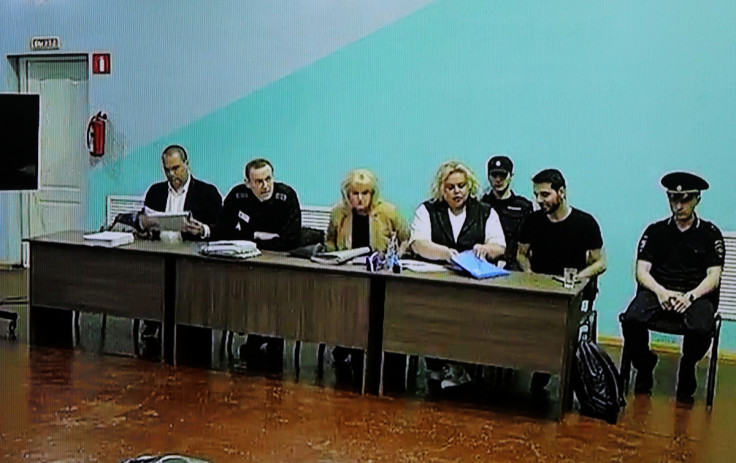Russia Bars Media From New "extremism" Case Against Navalny

The trial of Russian opposition leader Alexei Navalny on new charges of "extremism" will take place behind closed doors, a court spokesman said on Monday.
The decision means media will be excluded from proceedings against President Vladimir Putin's most prominent and vocal opponent that could extend his prison term by decades.
It was announced at the IK-6 penal colony in Melekhovo, about 235 km (145 miles) east of Moscow, where Navalny is already serving sentences totalling 11-1/2 years on fraud and other charges that he says were trumped up to silence him.
Journalists were not allowed into the room where the trial was taking place, but were initially given access to a video feed with barely intelligible audio.
The feed was later halted, and the court spokesman said there would be no more media access.
Prosecutors had raised unspecified security concerns, saying they had received evidence about a planned "provocation".
Navalny supporters were dismissive.
"What can be more secure than a strict-regime penal colony where no one is even allowed into the hall?" his spokesperson Kira Yarmysh tweeted.
On the video feed at the start of the hearing, Navalny, looking thin with cropped hair and dressed in a black prison uniform, was seen standing and speaking for three minutes.
He unsuccessfully demanded access to the courtroom for his parents, and contested the authority of the Moscow city court judge to try him in a penal colony far from the capital.
Navalny's supporters accuse Moscow of trying to break him in prison, where he has been placed for long spells in solitary confinement, to silence his criticism of Putin.
The Kremlin denies persecuting Navalny and says his case is a matter for the courts. "We are not following this trial," Putin's spokesman Dmitry Peskov told reporters.
Navalny, who is able to post on social media through his lawyers and allies, appealed on Instagram to Russians to "join forces in the fight against Putin's lies and Kremlin hypocrisy".
"Putin is afraid of any word of truth," he said.
A statement on his website continued: "We will conduct an election campaign against war. And against Putin. Just that. A long, stubborn, exhausting but fundamentally important campaign where we will turn people against the war."
Russia's next presidential election is due in 2024, and Putin has yet to confirm whether he will stand.
© Copyright Thomson Reuters 2024. All rights reserved.





















